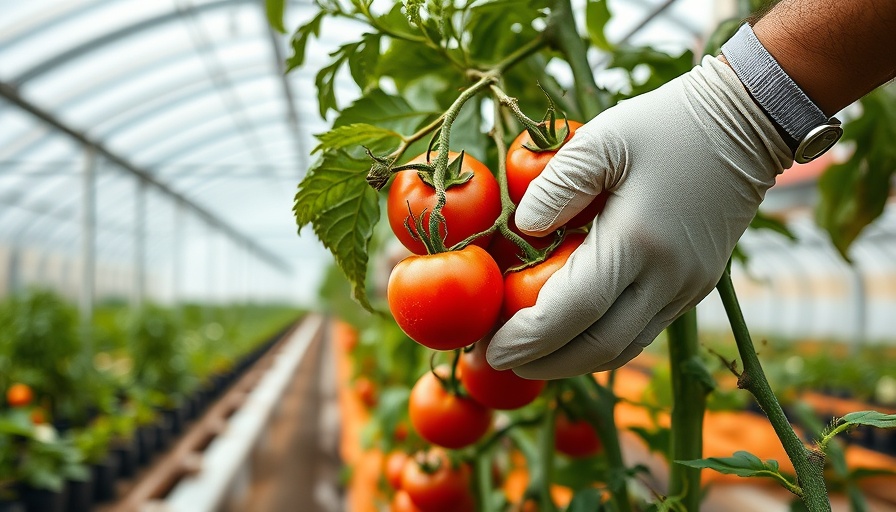
The Impact of Tariffs on the Louisiana Economy
The introduction of a 17% tariff on tomatoes imported from Mexico has thrown a significant light on the interconnectedness of global trade and local economies. As a large importer of tomatoes, the repercussions of this tariff are being felt right here in Louisiana. Local consumers may expect noticeable price increases in a staple that many households rely on for fresh salsa, tacos, and other beloved dishes.
Tomatoes: A Vital Ingredient for Louisiana
In Louisiana, the culinary scene is distinctively flavored by ingredients like tomatoes. For many households, tomatoes are a weekly purchase, whether for home-cooked meals or purchasing from local restaurants. Locally, Mexicans tomatoes are usually featured prominently in Creole and Cajun dishes. Thus, when tariffs cause prices to spike, they can directly affect the budgets and dining choices of residents over the age of 55 who prioritize affordability and flavor.
How Tariffs Affect Local Markets
The new tariff, implemented in the wake of various trade tensions, is intended to protect domestic agricultural businesses by making imported goods more expensive. However, the unintended consequence of this protective measure may burden consumers with higher grocery bills. In Louisiana, where elder citizens often live on fixed incomes, such rising costs bear a heavier weight. It's not just a matter of economics; it’s also about access to foods that enrich our culinary traditions.
A Broader Perspective on Trade Wars
The rise in prices isn’t solely localized to tomatoes; other imported goods might follow suit. As the U.S. grapples with ongoing trade tensions, consumers must brace themselves for the potential ripple effects across various sectors, including seafood, which is a significant part of Louisiana’s economy. The challenge becomes twofold—addressing rising prices while ensuring that local businesses remain viable.
Voices from the Community
Farmers and local business owners have begun to voice concerns over the impact of the tomato tariffs. Local farmer, Maria Cortes, shared, "We depend on Mexican produce to keep our prices competitive. When these tariffs come into play, it hits us hard. Our customers expect quality and affordability, and the burden will shift onto them if things don't change." This highlights the delicate balance between supporting local agriculture while competing against increased import costs.
A Look Into Alternative Solutions
As consumers, understanding the situation opens the door to alternative solutions. Could encouraging local tomato farmers to expand their growing seasons or swapping recipes to favor locally sourced items be a viable option? This mentality could be beneficial, not just for catering to culinary preferences, but also for supporting the local economy.
Future Predictions: Will the Tariff Tilt the Market?
The uncertainty surrounding these tariffs begs the question: will they lead to permanent changes in consumer shopping habits? Many assume that after initial adjustments, shoppers may gravitate toward local products more often, potentially boosting local agribusiness. The future remains uncertain, but as Louisiana continues to negotiate its position within a global market, much hinges on governmental policy and consumer response.
Conclusion: Engage and Adapt
Navigating the complexities of tariffs and their impacts encourages Louisiana residents to engage with their local economies. Understanding these dynamics can empower informed decisions both in the grocery aisle and at the voting booth. Whether looking to support local farmers or seeking new shopping strategies, adapting to these changes remains essential. Stay updated on local food prices and advocate for both affordable options and quality produce as these challenges unfold.
 Add Row
Add Row  Add
Add 



Write A Comment